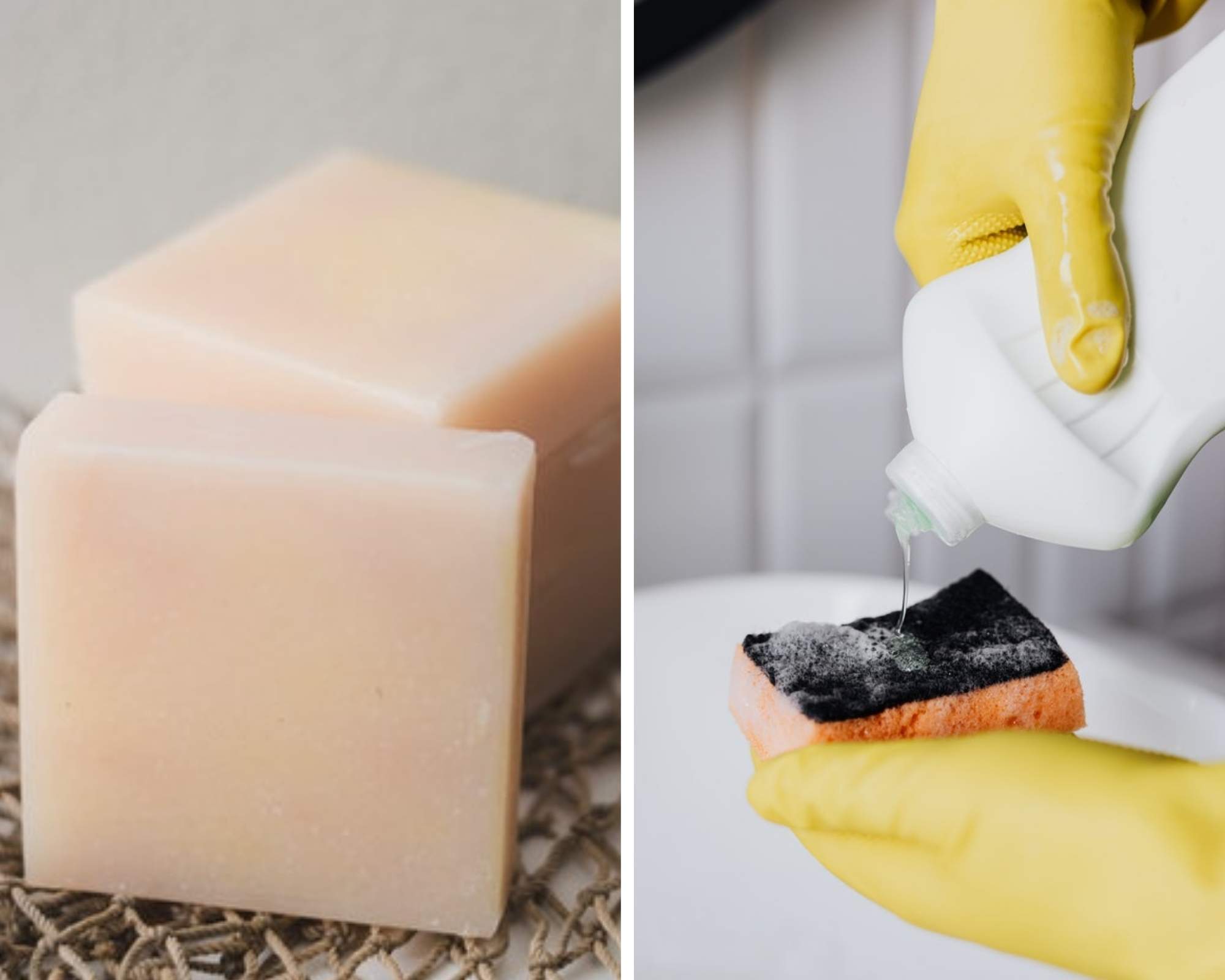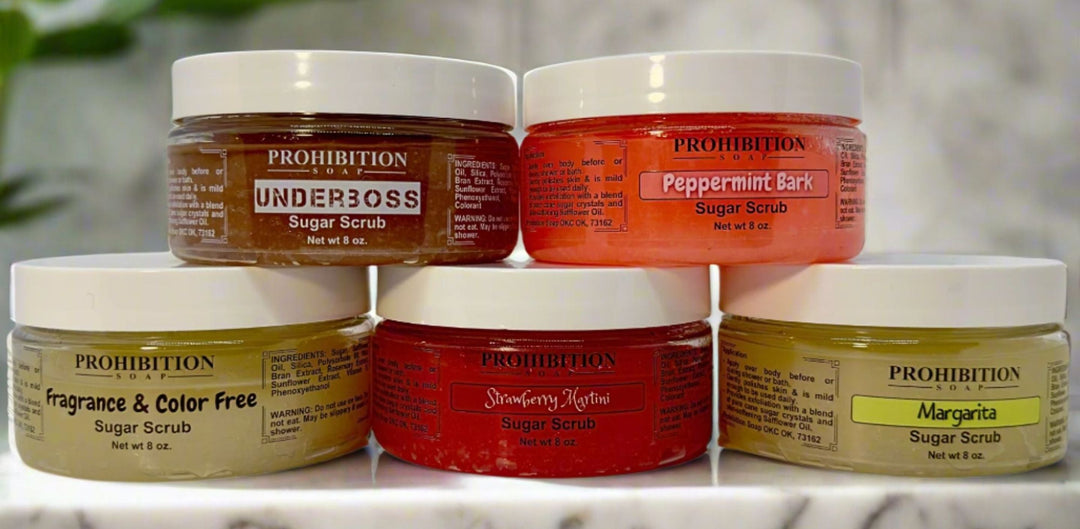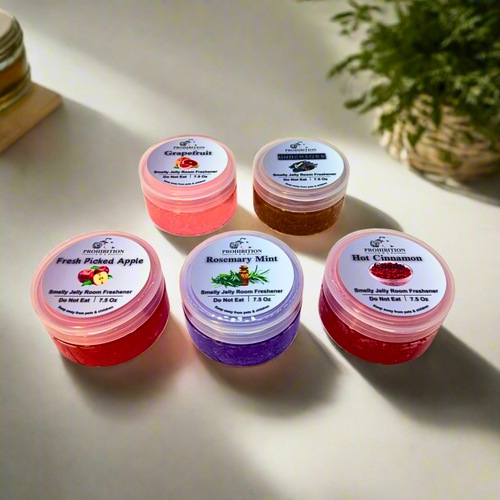Handmade, Natural Soap vs. Commercially Made Soap
This year has been a year of revelations. One of those revelations has both directly and indirectly been the dire need for better health and hygiene practices. COVID-19, the big stormy cloud looming over the year 2020, has made even the most uncaring of us health-conscious to an extent. With that, many people started examining what all they are putting into their bodies, especially when it started coming out that different meats and other foods were being diagnosed with holding the coronavirus, either in the meat itself or on the packaging.
Besides food, many people began to examine what they put ON their body. Staying home for most of the year has sparked people’s creativity, encouraging people to explore more natural and organic ways to make and do everything they were used to. Natural, handmade soap fell into that category.
Artisan Soap for the Win
Making things by hand, especially body products such as soaps, lotions, and deodorants, became popular in the last few years with the artisan craze. An Artisan is a craftsperson skilled in making a specific product by hand. These types of products are usually known to be of a high quality due to the care given to each individual item, as opposed to items that are mass-produced either by small hands or by big machines all across the world.
Artisan items are usually produced in small batches, thereby allowing the craftsperson to catch any mistakes, blemishes, or inconsistencies. Another quality of artisan product is that they are made using natural ingredients that are safe for the body and gentle on the skin. Artisan soap is no different.
Depending on whether or not this is a specialty soap, such as being beneficial for a skin condition, or a regular soap that is just intended to cleanse, artisan soaps are made with the most natural and beneficial of ingredients, such as essential oils, natural butters like shea butter, and other ingredients that can be found or derived naturally from the earth. These types of soaps can be made with premium fragrances or are fragrance-free, depending on the desires and needs of their customers.
Benefits of Using Handcrafted Soap
There are many benefits of using soaps that have been crafted by hand. A marketing benefit, one of which is usually not the reason people buy with these types of companies, is that buying these items will usually be in support of small or local businesses. While there are big companies that claim to sell natural soap, most consumers do not trust that these larger companies are being transparent about the ingredients and manufacturing of their products. These soaps are made using ingredients from various natural sources. Usually made by blending butter and plant-based oils that are rich in vitamins, antioxidants, and nutrients, these soaps are pretty nutritious for our hair, skin, and body.
For people with sensitive skin or skin conditions like eczema or psoriasis, natural soaps can be a life-changing product. The moisturizing properties of handcrafted soaps hydrate the skin by penetrating it in ways that other unknown ingredients in commercially-made soap could not due to the chemicals they are made with. Commercial soaps are usually processed to remove the glycerin, which is a natural byproduct of soap making and is one of the main ingredients that allow the skin to soak in the moisture.
Handcrafted soap also consists of better ingredients than commercially-made soap. Due to most store-bought soaps being produced in bulk, they have to use cheap, synthetic ingredients so the soaps are easier to mass-produce for bulk distribution. These artificial ingredients are not good for the body, hair, or skin despite what corporate companies try to sell consumers on.
Natural Soap Made via Cold Process
Making soaps by using the cold process method includes combining oils and sodium hydroxide lye, causing a chemical reaction known as saponification. Throughout this process, the craftsman is able to choose the oils, scents, colors, and all other ingredients that will go into the soap—harmless ingredients that are good for the skin.
When first breaking into the art of soap-making, using the cold process method may be the most tedious for beginners. Cold processing allows the creator to use ingredients of their choosing, as many or as few as they desire, as long as one of them is oil, the main ingredient for any type of soap. Another benefit of the cold process method is the ability to use aromatic and antibacterial herbs of the soap maker’s choosing, such as thyme, sage, rosemary, and other delicious ingredients that gives the soap an extra quality of goodness.
This method of soap making also preserves the benefits of the oils and butters used—a quality that is lost when using another soap making method, the melt and pour method.
To carry out the cold process method, you will need lye, any oils and butters you wish to add to your creation, any fragrances and colorants, a digital scale, a thermometer, heatproof containers, tools such as spoons and scrapers, a soap mold if desired, and a lot of patience with yourself if you’ve never done this before. After completing the steps to make cold process soap, test it out on yourself starting with a small patch of skin to ensure it does what you want it to do and you don’t have any reactions to it. Then, as you feel more comfortable, allow your family and friends to try it out to see if it reacts differently to different skin. An added bonus, if possible, is getting individuals with different skin conditions to try it out. This way, if it helps improve their skin condition, this is something you could use to your advantage when advertising.
Commercially-Made Soaps vs. Handmade Soaps
Though we have discussed throughout this article most of the differences between commercially-made soaps and handmade soaps, decision-making is usually made easier and more helpful for consumers if there is a summed-up list of points to remember—which is why we’d like to remind you of all the reasons handcrafted soaps are better.
They are made with natural ingredients that are better for the skin and healthier for your body. Commercial soaps are made with harsh chemicals that are easier to mass-produce, with the tradeoff being how healthy—or, rather, unhealthy—it is for your body.
These chemicals and cheap fragrances used in commercial soaps can cause irritation to your skin, especially if it is sensitive. Mass-production soaps are better classified as detergent than soap, being that they strip your skin of natural oils and nutrients in the name of cleaning, whereas handcrafted soaps are able to allow your skin to hold onto these nutrients while still leaving the moisturizing and nourishing qualities the handmade soap offers.
If we haven’t made you a believer, even after all these colorful words and comparisons, visit our site to or contact us to see if we could be a match!





